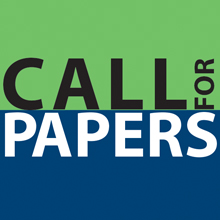![]()
23rd EUROCALL Conference (http://eurocall2016.org/)
24-27 August, 2016, Lemesos, Cyprus
THEME: CALL Communities & Culture
Call for Papers
——————————-
Call for Participation
——————————-
Do not miss the exciting opportunity to present a paper, a symposium, an EU-funded project, a workshop, or a poster at the EuroCALL 2016. The 23rd EUROCALL Conference will be held at the Cyprus University of Technology in Lemesos (Limassol) Cyprus from 24th to 27th August 2016.
EUROCALL conferences are hosted under the auspices of the EUROCALL Association. They bring together educators, researchers, PhD students, administrators, designers of software and language learning systems, policy makers and other professionals involved in Computer-Assisted Language Learning (CALL) around the globe.
Conference languages: English and Greek (Plenary sessions will be in English, some parallel sessions may be in Greek).
——————————–
Thematic Areas
——————————–
· Interculturalism/ Multilingualism/ Bilingualism in CALL:
o CALL, inclusion and social justice
o Cultural Inclusion
o Interdisciplinarity and Internationalization through CALL
o CALL and less commonly taught languages
· Materials and modes of CALL:
o Social Networking
o Telecollaboration and CMC
o MOOCs for language learning
o Mobile Assisted Language Learning (MALL)
o Preparing and delivering Open Educational Resources (OER), open courseware and open online courses for language learning
· Teacher education and professional development
· New research trends in CALL:
o Learning analytics and CALL design
o DBR (Design-Based Research)
· Designs and pedagogy for CALL, e.g.:
o Task-based learning
o Autonomous and lifelong learning
o Competence or outcome-based frameworks (CEFR, IATEFL, etc.) in CALL design
o Open and independent online language learning
o Computer-based language tests
· Other topics can also be considered as long as they as long as they are relevant to the conference theme.
——————————–
Important Deadlines
——————————–
Deadline for submissions of proposals: January 31st 2016
Notification of acceptance: April 8th 2016
Online registration opens: April 10th 2016
Early-bird Registration ends: May 31st 2016
Deadline for registration for accepted authors: May 31st 2016
——————————
Conference contact
——————————
Conference Organiser: salomi.papadima@cut.ac.cy
Programme Administration: info@easyconferences.eu
Proposals are invited for individual papers, symposia, european projects, workshops and posters:
1. Individual papers
Papers can be submitted for either 45 minute presentations or 30 minute presentations:
· 45-minute presentations: 30 minutes presentation, 10 minutes for questions, 5 minutes for room changes
· 30-minute presentations: 20 minutes presentation, 5 for questions, 5 minutes for room changes
Three types of papers may be submitted:
1. Research: papers focusing on a clearly specified research topic supported by a rationale, including a brief literature review. The thrust may be empirical or theoretical. The methodology should be clearly outlined as well as the actual or potential findings.
2. Research and development: papers focusing on the development of applications and programmes integrating CALL. The research should be original and may emphasize practice rather than research. They may also be based on projects either completed or under development (European, national, local).
3. Reflective practice: papers dealing with the integration of ICT in different contexts and for different purposes. The reflection could take the form of evaluation or action-research. Proposals should include elements that are of relevance beyond the context of the practice described.
2. Symposia
Symposia consist of from three to six presentations on a similar topic, proposed and organised by a chairperson, and should normally address the conference theme. Sessions last for 90 minutes, with NO changeover during the symposium. The proposal should outline the purpose of the symposium, the names and institutions of the participants, with a sentence mentioning what aspect of the main problem that each will address.
Submissions for symposia from EUROCALL’s SIGs are particularly welcome, with a view to promote their work to the conference delegates and encourage participation in the SIGs. Current Eurocall SIGs are: Teacher Education, Virtual Worlds, Natural Language Processing, CorpusCall, Computer Mediated Communication, and Mobile-Assisted Language Learning.
3. European Projects
This year’s conference will again offer a forum for the showcasing and dissemination of EU-funded projects. Each project will be allocated a 30-minute slot, including questions.
4. Workshops
Workshops are either half a day or a full day in duration and typically involve a hands-on session, where participants have the opportunity to become familiar with the latest developments in relevant topic areas in language teaching and learning and tools associated with these. We particularly welcome workshop proposals addressing the conference theme from theoretical and/or practical perspectives. The proposal should include the intended duration of the workshop, its main purpose and a brief outline of topics covered/ activities as well as technical requirements. Workshops will be scheduled on 24th August.
5. Posters
Since posters aim to attract attention to a particular project or research domain, they should mainly focus on work in progress. They may, however, report previous or preliminary findings. Posters should be clear, easy to read and attractively laid out. Submissions from advanced students are especially welcome in this category. A prize will be awarded for the best poster in two categories: PhD/Graduate student and non-PhD student.
For formatting instructions and more information please see: http://eurocall2016.org/
Proposal submission system: https://www.openconf.org/EUROCALL2016/openconf.php












